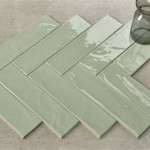Essential Considerations for Using Flexible Tile Adhesive on Concrete Floors
Laying tiles on concrete floors involves meticulous attention to detail and choosing the right adhesive is paramount. Flexible tile adhesive specifically engineered for concrete floors offers several advantages, but it's essential to understand its suitability and limitations.
Adhesive Properties and Composition
Flexible tile adhesive, as the name suggests, exhibits elasticity, enabling it to accommodate movement in the subfloor and tiles. This movement can arise from thermal expansion, structural shifts, or vibrations. The adhesive's composition typically includes a blend of polymers, resins, and fillers, resulting in a durable and pliable bond.
Benefits of Using Flexible Adhesive on Concrete
Employing flexible tile adhesive on concrete floors offers several benefits:
- Prevents Cracking: Flexible adhesive compensates for the natural movement of concrete floors, reducing the risk of tile cracking.
- Accommodates Subfloor Irregularities: It can bridge minor imperfections in the concrete surface, ensuring a uniform and secure bond between the tiles and the substrate.
- Suitable for Large-Format Tiles: Flexible adhesives are well-suited for large-format tiles that experience greater thermal stress.
- Reduces Noise: The elastic properties of the adhesive help absorb and dampen impact noise, enhancing floor comfort.
Considerations for Selection and Use
When selecting flexible tile adhesive for concrete floors, consider the following:
- Concrete Preparation: The concrete surface must be clean, dry, and free of any contaminants that could compromise adhesion.
- Notch Size: Applying the adhesive using the appropriate notch size recommended by the manufacturer ensures optimal bond strength.
- Open Time: Understand the adhesive's open time, which refers to the period in which tiles can be positioned and adjusted before the adhesive sets.
- Curing Time: Allow adequate curing time for the adhesive to fully bond and reach its maximum strength before subjecting the floor to heavy use.
- Limitations: Flexible tile adhesive may not be suitable for all types of tiles or applications. Consult the manufacturer's guidelines for specific recommendations.
Conclusion
Using flexible tile adhesive on concrete floors can enhance the durability and longevity of your tiled surfaces. By considering the adhesive's properties, benefits, and application guidelines, you can ensure a successful installation that withstands the inevitable movement inherent in concrete floors.
How To Tile Onto Concrete Floors Porcelain Super

How To Install L And Stick Vinyl Tile On Concrete Floor Self Installation

Can You Lay Tiles Onto Damp Concrete Atlas Ceramics

Which Are The Best Floor Tile Adhesive Used For Tiling

Floor Tile Adhesive Best Type For Each Case

How To Install Tiles Using Tile Adhesive Expert Step By Guide

Tile Adhesive Standards And Their Relevance For Installation Wacker Chemie Ag

Natural Stone Tile Adhesive Building And Construction Adhesives Adhesivesandoatings Com
.jpg?strip=all)
Which Tile Adhesive Should You Use For Your Tiling Project

Cement Based Tile Adhesives Ardex
Related Posts








